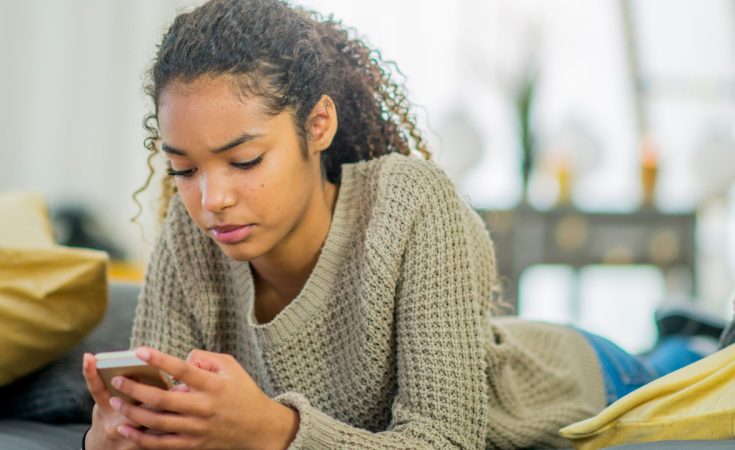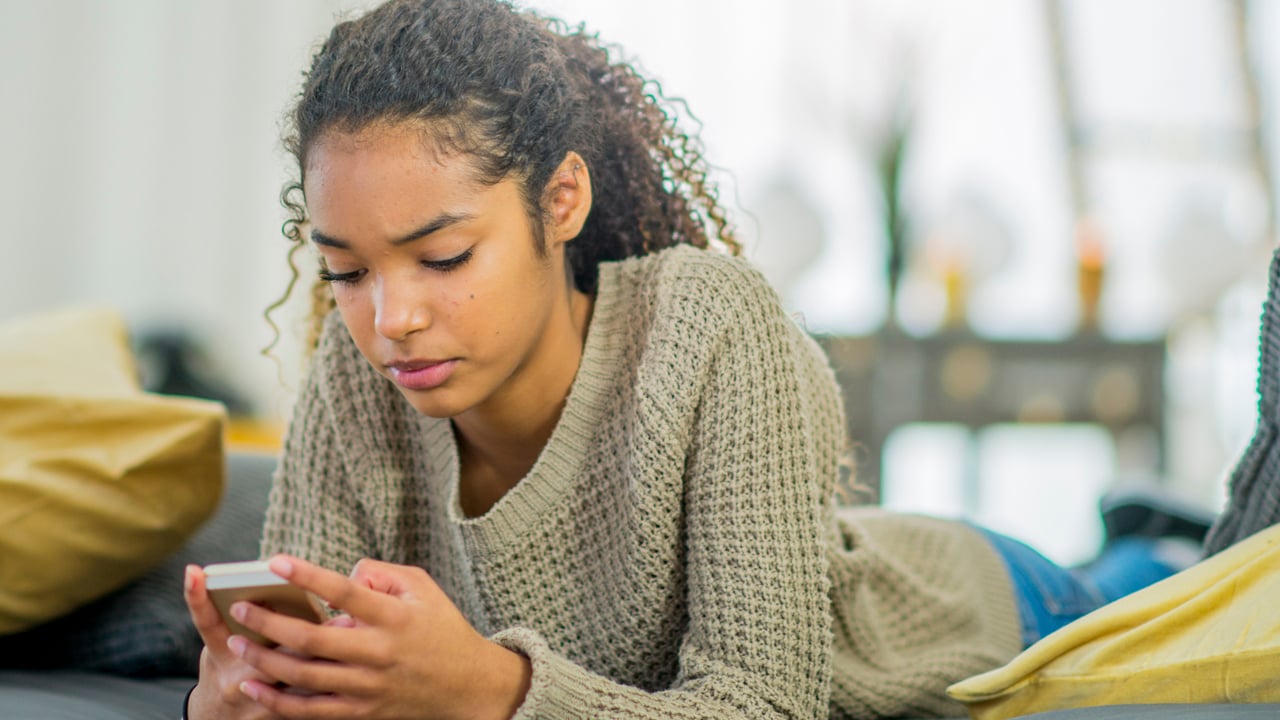Dove is making it easier for parents to help raise more confident children by providing them with the free tools they need so that kids can navigate social media with self-assurance. Here’s how.
After months of online classes and more time than ever before spent on social media, it’s no surprise that tweens and teens are struggling with low self-esteem right now. While social media apps can be fun and creative, they can sometimes promote unrealistic beauty standards, with glossy filters and edited photos. In fact, a 2021 Dove Detoxify Survey found that 67 percent of Canadian girls try to change or hide at least one body part or feature before posting a photo of themselves. And by age 13, 80 percent of girls have already applied a filter or used a retouching app to change the way they look in their photos. Add cyberbullying (which 15 percent of teens have experienced) to the mix, and screentime can start to really mess with kids’ body image.
Here’s the good news: Scientists now believe that it’s not how much time young people spend on social media but how they use it that will either positively or negatively influence them. That’s why the Dove Self-Esteem Project (DSEP) is on a mission to improve youth self-esteem and body confidence. DSEP is the world’s largest provider of body confidence education of its kind, having helped 3.5 million Canadian children through self-esteem and body confidence educational programs with free resources and tools.
Dove’s own research shows that adults are important body confidence role models for the young people in their lives. It’s crucial for the grownups in children’s lives to talk to them about social media and the pressures it can present—the same way important discussions are had around puberty, sex and consent. Those talks can be tricky sometimes, which is why Dove launched the Confidence Kit: A free resource to help adults navigate important conversations and have “The Selfie Talk” with children about self-esteem, social media and confidence. It was developed in collaboration with leading psychologists and academic experts for parents, grandparents, aunts, uncles, caregivers and anyone else who wants to help the kids they love feel more confident in their body image and self-esteem. It’s a great resource for the any adult to use.
The Confidence Kit offers actionable advice and tools for parents and kids of all ages, so you can choose which articles and activities suit their current needs (whether they’re in preschool or high school). A couple of ways adults can help kids develop healthy self-esteem, for example, are to show appreciation for their own bodies and be extra wary of making hurtful comments about others’ appearances. The kit also covers different strategies for using social media with more purpose, how to spot an advertisement, coming up with a plan for cyberbullying and more. And if a parent or caregiver is worried their child may be experiencing bullying online, there’s even a list of warning signs to look out for. You can print out checklists and worksheets, or download it as a digital guide to consult anytime, anywhere.
Given that 25 percent of girls think that they don’t look good enough without photo editing and 63 percent of girls wish the world would focus more on who they are instead of what they look like, having “The Selfie Talk” with kids (regardless of their age or gender) is necessary to help maintain and build their crumbling self-esteem and ensure the next generation grows up enjoying a positive relationship with the way they look.
For more information, including other free resources and articles about raising confident kids, visit Dove.ca.



































